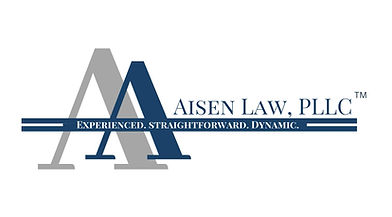Holiday Cyber Safety - Don't Become Jack Frost Roasting on an Open Fire
- aaronaisen
- Nov 30, 2022
- 2 min read
The holidays are here. People are being treated to Nat King Cole singing The Christmas Song in his great tenor voice. You know, the song that starts, "Jack Frost roasting on an open fire, chestnuts nipping at your nose." Wait! Did you catch that? That's right, Jack Frost is not roasting on an open fire and chestnuts are not nipping at your nose. Just the opposite. But with the right lead in, you could miss the switch.
Likewise, cyber criminals hope you get distracted with all of the celebrations, parties, buying of gifts, and last minute donations with the ultimate goal of your money becoming their money. Here are three tips to ensure that you have a safe holiday season.
1. Be careful about how you donate to charity. This time of year, many charitable organizations are looking for donations. Solicitations come via email, the phone, and mail. This is, of course, understandable. Unfortunately, the bad guys understand how to tug at heartstrings too. They may pretend to be be from a well-established charity or religious organization or from a brand new one. In the moment, it can be difficult to discern between the real thing and the not-so-real thing. One way to stay safe - if someone calls, say from a local mission, asking for money, thank them for the call and offer to send the donation in via the organization's website or offer to drop a check off at the location. Avoid giving out financial information over the phone to anyone.
2. Use a single card (credit or debit) for your online purchases. I am a big fan of using a single credit card for this. If you card gets stolen, the bad guys are not getting cash and credit card companies will deal with the fraud. But, if you really want to use a debit card (which is totally understandable given the obvious problems with credit cards), try opening a separate account apart from your main account. Get a separate card for that account. Transfer enough money to that account to cover the purchase you are making. This way, if the card number gets stolen, the bad guys will likely find nothing there, and your primary account is safe.
3. Be careful with personal information. This time of year is open enrollment for benefits at many companies. Many of these benefits require you to provide your name, date of birth, and social security number. Sometimes, you may have to put this information on actual paper and either submit it manually or scan it in and send it via email. Secure those papers in a locked file cabinet or some other safe place. If you are able, shred them at the first opportunity. Those three pieces of information are all a good identity thief needs to make your life very complicated.
Bonus Tip: Consider locking your credit accounts at TransUnion, Equifax, and Experian to ensure that someone cannot open a line of credit in your name. Also, consider a good credit monitoring service to ensure that you know if someone tries to steal your identity.




Great article! Suggestion for future article:
1) So you have increased your identity risk: now what?!
2) What can happen should your information become compromised.
3) The Dark Web, what it means, how to monitor it, and what to do if you are found on it.